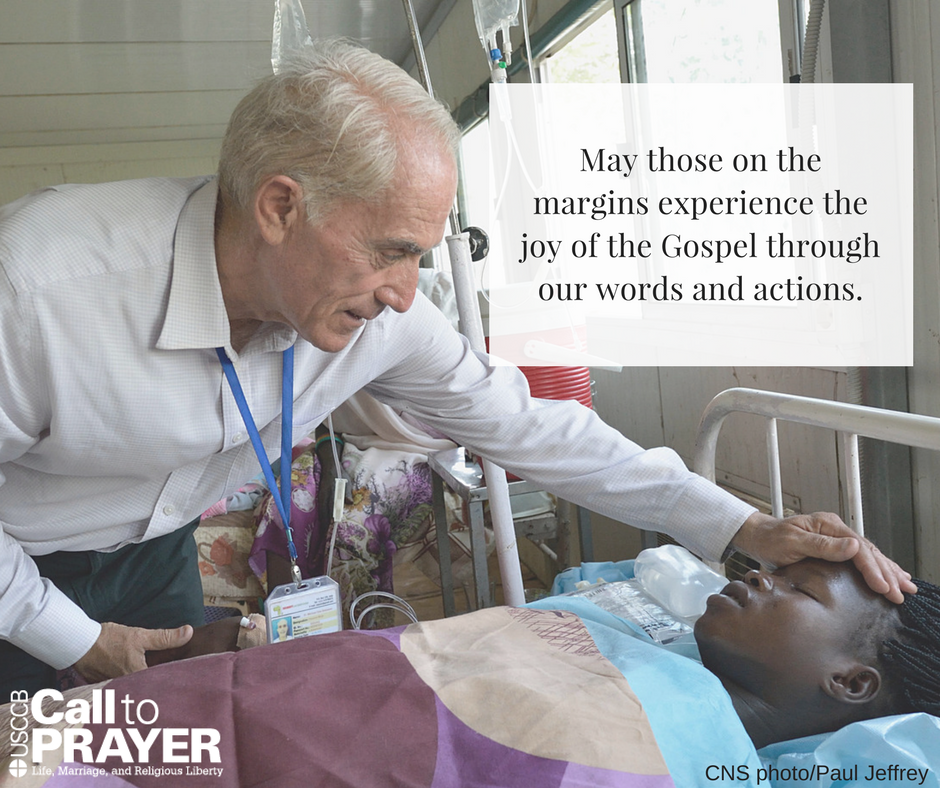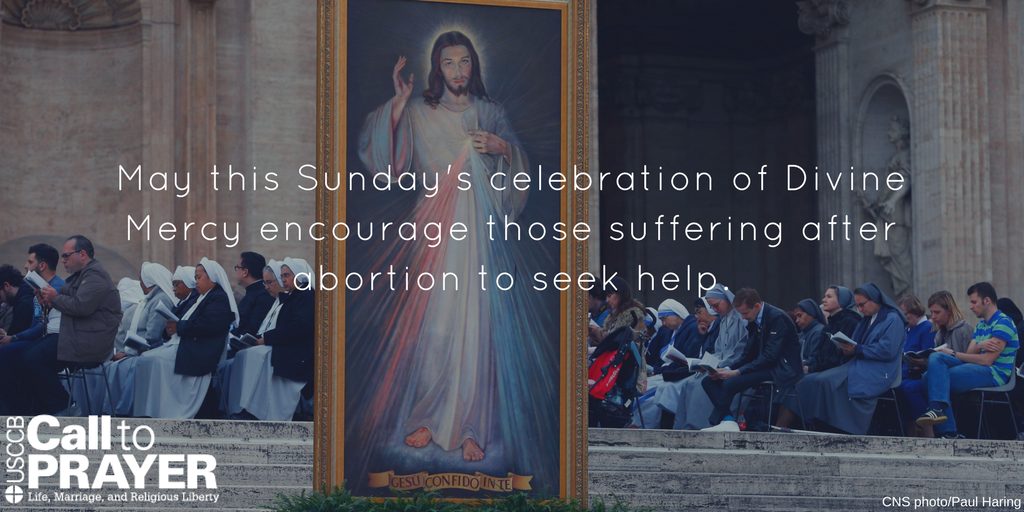Call to Prayer: Friday, April 28th, 2017
Archive
Call to Prayer: April 21st, 2017
Archive
Human Ecology: Made for the Common Good Series
Today, we finish this series on Made for the Common Good with Lucia Luzondo speaking about Pope Francis’ concept of “human ecology.” Just as the natural world has a proper environment and humanity needs to respect certain limits, so too the human person has a proper environment: the family. The pope wrote about this in Laudato si’ [LS] (nos. 5, 148, 152, and 155), which focused on “Care for God’s Creation.”
One of the aspects of human ecology we consider at MUR is the effect of gender ideology. As Pope Francis said, “An appreciation of our body as male or female is also necessary for our own self-awareness in an encounter with others different from ourselves” (LS, no. 285). The increasing tendency to separate sex and gender and to promote a false anthropology in which one’s natural reality is inconsequential to one’s psyche today is dangerous. It will not lead to peace or joy.
The MUR video, Made for the Common Good, was created in order to elucidate the concept of the common good of society and how marriage contributes to it. We have looked at the effect that the marriage of one’s parents has on one’s development, and the way that other forms of family structure can be detrimental to a child. We have looked at the way that strong marriages in the community are of benefit to everyone, adding stability to neighborhoods and keeping kids out of jail.
Question: What else do you think is affected by marriage? How can we spread the word?
Archive
Call to Prayer: April 14th, 2017
Archive
A Genetic Connection: Made for the Common Good Series
In today’s clip from Made for the Common Good, we hear from Alana Newman, who was
conceived by her mother with the contribution of a sperm donor. When Alana received information about her biological father, in the form of some “non-identifying” qualities, she immediately acted upon the information by buying a plane ticket to the country her father was originally from.
What did going to Poland do for Alana? Was it a pointless exercise?
If you’re American, chances are good that your family, somewhere down the line, is from somewhere else. Have you ever gone to visit the country your family is from? What was that experience like?
My family is Italian. The first time I went to Italy, I thought, “Wow, these people all look like me!” When I went into stores, the shop owners didn’t immediately switch to English, as they did with other tourists. Once I was dressed in a long skirt that friends joked was my “gypsy skirt” and sitting outside a church; a little girl pulled at her mother and pointed at me, asking her mother to give me money. (There are a number of Romani who beg outside churches in that area). Clearly, I blend in perfectly in Italy, despite having lived my whole life in the U.S. I experience an almost instinctive belonging there, because when I look around, I see people who look like me. We obviously share some genes!
That’s what Alana could find by going to Poland. She could sit in a café and look at people walking by and try to see her own face and body type in them. She would probably feel at least some of what I feel in Italy—instinctive belonging due to similarity in looks. Her father’s ancestry is her heritage, even though she has never met him. She shares genes with people in Poland.
If you’re interested in learning more about adults who look for information about their sperm donors, this article came out this month (February 2017), focusing on one clinic in California. The article looked into how many adults looked to connect with their sperm donor fathers when they came of age. This particular clinic uses “open-identity donation,” where this is an option once the child turns 18, but many clinics are still based on anonymous “donors” where the child has no recourse to knowing the identity of their biological parent.
Question: Do you think this situation of anonymous sperm and egg donors should be remedied? How?
Archive
Call to Prayer: April 7th, 2017
Archive
Crime: Made for the Common Good Series
“Because he loves me,” the young girls said, in response to Dr. Amanda Boyd’s question of why they would commit a crime with their romantic partner. They admitted to her that they probably wouldn’t have committed the crime if not for their boyfriend.
Dr. Boyd said that, of the girls she met when she volunteered at a facility for juvenile delinquents, only one of them had a father that they knew. They sought the affirmation of men in other, less healthy ways, most likely because of this lack in their life.
Children need a father.[i] They need a man to look up to, and to emulate (in the case of a boy) or to learn how they should be treated by one (in the case of a girl). Check out some of the research that shows the effect of fatherlessness on our kids.
This isn’t some ideological stance that is particular to the Church. Even Oprah talks about how “daddyless daughters” struggle with self-worth. Secular authors write about how dating a woman without a father has particular challenges and that women can have Fatherless Daughter Syndrome. There’s a Fatherless Daughter Project just for them. There’s loads of social science research backing it up.[ii]
There are some initiatives out there that seek to alleviate some of these effects, such as “Big Brothers, Big Sisters,” and these are laudable. But no one can really take the place of your own father.
Question: What can our society do to encourage men to be good fathers and to be involved in their children’s lives even if they are not married to the mother?
[i] An interesting (secular) take on this need is Paul Raeburn, Do Fathers Matter? (New York: Scientific American, 2014).
[ii] There are too many studies out there to even begin to do a systematic review. Here’s a nice simple one from 2014: Anna Sutherland, “Yes, Father Absence Causes the Problems It’s Associated With,” Institute for Family Studies, http://family-studies.org/yes-father-absence-causes-the-problems-its-associated-with/ (accessed February 10, 2017).



